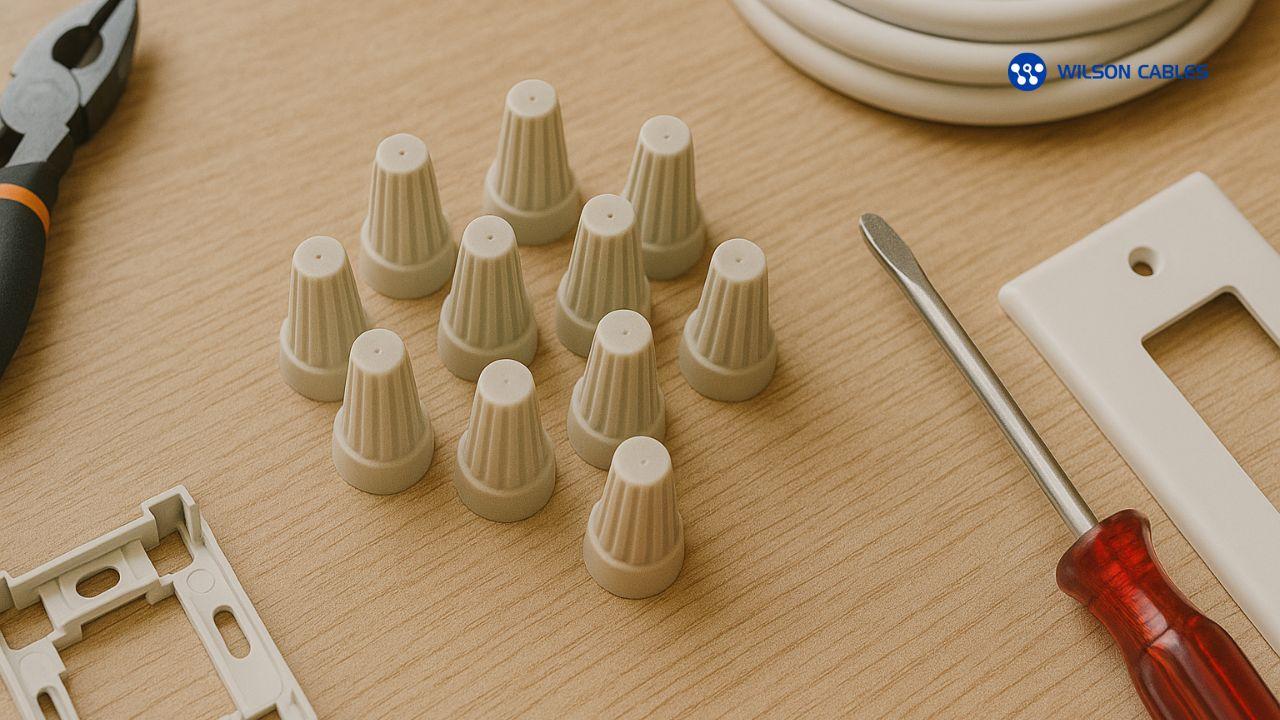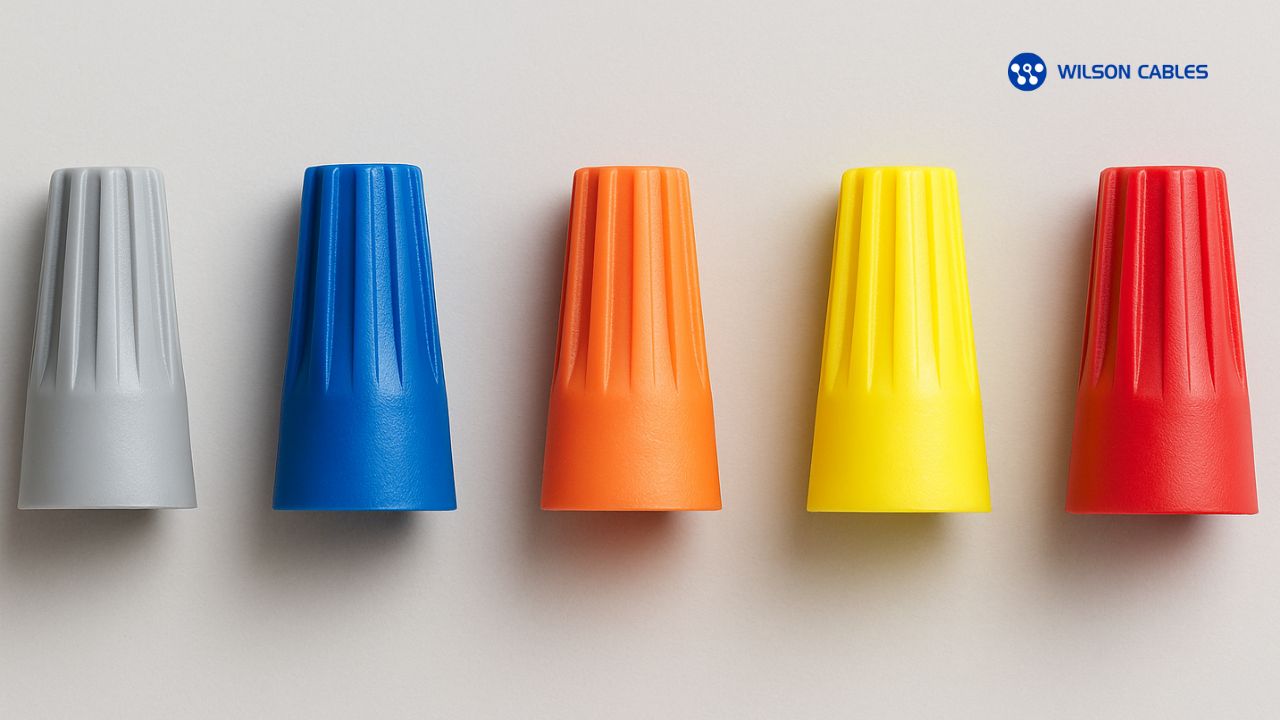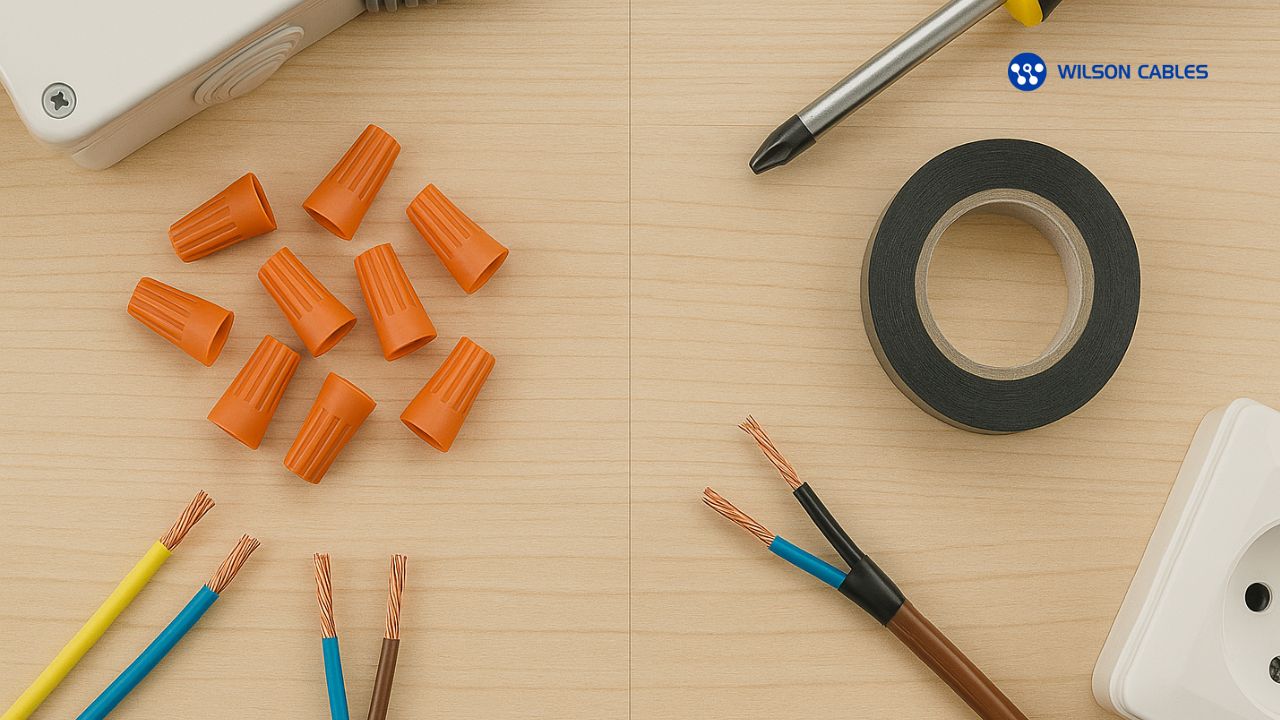
Safety and strength are crucial aspects in the process of connecting electrical cables. Generally, the final stage of cable connection techniques involves wrapping the connection with electrical insulation. In addition to insulation, there is another alternative that is more practical and safer, namely wire nut. The use of splice wire is becoming increasingly popular among electrical technicians due to its advantages in providing protection and stability for cable connections.
This article will comprehensively discuss what wire nut is, its functions, sizes, types, and its advantages as an alternative to insulation in electrical cable connections.
A wire nut, also known as a twist-on connector, is a small component used to secure electrical cable connections. It works by clamping twisted cables and locking them in place with an internal screw system.
In general, wire nuts are made of plastic or ceramic materials that have high insulation properties, thereby preventing current leakage and the risk of short circuits. Installation is easy, simply insert and twist the wires so that the wire nut can provide a strong and stable connection even in environments with high vibration or humidity.
Wire nuts play an important role in ensuring that cable connections remain well insulated. Some of their main functions include:

Wire nut sizes are adjusted according to the number and diameter of the cables to be connected. Generally, each wire nut size is marked with a specific color to make it easier for technicians to choose the right product. Here are some examples of specifications based on color and cable capacity:
Gray wire nuts are suitable for connecting two cables measuring 0.5 - 1.5 mm². They are used in installations with a voltage of 300V and a maximum temperature of 105°C.
Blue wire nuts have similar specifications to gray ones, namely for two 0.5 - 1.5 mm² cables, and are suitable for light installations such as lighting or small socket connections.
The orange wire nut is ideal for two 2.5 mm² cables. It is generally used for connections with higher currents, but still within the limits of 300V and a maximum temperature of 105°C.
The yellow wire nut can connect three 2.5 mm² cables. It is suitable for medium power distribution in household installations.
Red wire nuts are designed to connect up to four 2.5 mm² cables. They are suitable for applications that require stronger and more reliable connections in large-scale electrical installations.
Here are some types of wire nuts commonly used in electrical installations:
This type is most commonly found and used for connecting cables in residential homes. It has a threaded design on the inside and is suitable for simple connections.
This type has a longer bottom design that protects more of the cable. Suitable for areas with higher potential for contact or risk.
Designed for outdoor installations. Usually coated with waterproof material or has a silicone protector to prevent moisture from entering the cable connection.
Made of ceramic or thermoplastic material that can withstand heat. Used for electrical installations in high-temperature areas such as heaters or ovens.
This type does not require twisting the wires. You simply push the wires into the connector and the connection will lock automatically.
Some wire nuts are made for special functions, such as green wire nuts for grounding or purple wire nuts for connecting copper and aluminum wires together.

Why do many technicians choose wire nuts over manual insulation methods such as PVC insulation?
In order to optimize and secure cable connections, it is also important to choose high-quality cables. Wilson Cables offers a variety of electrical cables that meet SNI and ISO 9001:2015 standards, including versatile cables such as NYA, NYM, and NYY cables, which are ideal for residential installations.
Wilson Cables also provides a wide range of electrical cables that meet SNI and ISO 9001:2015 standards, including versatile cables such as NYA, NYM, and NYY cables, which are ideal for residential installations. Wilson Cables offers various types of electrical cables that meet SNI and ISO 9001:2015 standards, including versatile cables such as NYA, NYM, and NYY cables that are suitable for home and industrial installations.
You can ensure that the electrical installation in your home or project runs safely, efficiently, and durably by using the appropriate wire nuts and quality cables from Wilson Cables.
Wire nuts are a practical and safe cable connection solution, especially for residential, industrial, and outdoor applications. With a wide selection of types and sizes, wire nuts can replace traditional insulation as the final stage of cable connection. Make sure you use wire nuts that match the installation specifications and combine them with quality cables from Wilson Cables for maximum results.